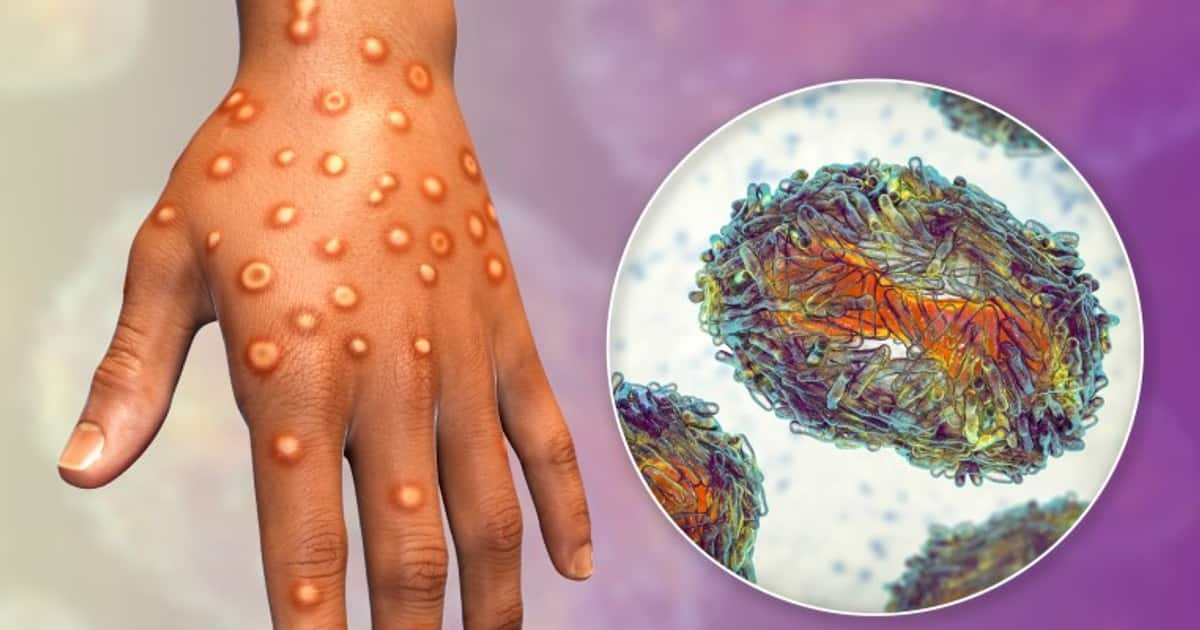


A 38-year-old man in Kerala has been confirmed as the first case of Mpox clade 1 variant in India. This is a more virulent and deadlier strain of the virus, first reported in the Democratic Republic of Congo. The World Health Organization has declared Mpox a public health emergency for the second time, with 30 cases reported in India since the declaration. Experts warn about the potential for a disastrous epidemic in densely populated India and emphasize the importance of prevention measures, such as regularly washing hands and avoiding contact with infected individuals.
Mpox Clade 1 Variant Emerges in India: Concerns and Prevention Measures
Background
Mpox, formerly known as monkeypox, is a viral disease that is spread through close contact with an infected person or animal. The virus causes symptoms such as fever, headache, muscle aches, swollen lymph nodes, and a characteristic rash.
In 2022, a more virulent strain of Mpox, known as clade 1, emerged in the Democratic Republic of Congo. This strain has been associated with higher mortality rates and more severe symptoms.
First Case in India
On January 19, 2023, India confirmed its first case of the Mpox clade 1 variant in a 38-year-old man in Kerala. This case raised concerns about the potential for a widespread outbreak in India's densely populated areas.
The World Health Organization (WHO) has declared Mpox a public health emergency for the second time, emphasizing the need for urgent action to contain the spread of the virus.
Top 5 FAQs and Answers
1. What are the symptoms of Mpox clade 1?
The symptoms are similar to those of other Mpox strains, including fever, headache, muscle aches, swollen lymph nodes, and a rash. However, clade 1 may be associated with more severe symptoms and a higher mortality rate.
2. How is Mpox transmitted?
Mpox is transmitted through close contact with an infected person or animal, such as through skin-to-skin contact, contact with bodily fluids, or exposure to contaminated materials.
3. Is Mpox fatal?
Mpox can be fatal, especially in cases of severe illness or infection in immunocompromised individuals. The clade 1 variant has been associated with a higher mortality rate compared to other strains.
4. What are the prevention measures for Mpox?
Prevention measures include:
5. Is there a vaccine for Mpox?
Yes, there is a vaccine available for Mpox that has been shown to be effective in preventing infection. Vaccination is recommended for individuals at high risk of exposure, such as healthcare workers and people living in areas with high rates of infection.
Conclusion
The emergence of the Mpox clade 1 variant in India is a cause for concern. While the first case has been confirmed, it is crucial to implement effective prevention measures to prevent a widespread outbreak. Individuals should be aware of the symptoms and transmission routes of Mpox and adhere to recommended guidelines to protect themselves and others.

A college student shares her personal journey of becoming a vegetarian, despite facing challenges and health concerns. She then delves into an ethics class she took, where the concept of marginal cases were discussed. Following an article by philosophy professor Alastair Norcross, she concludes that even though individual action may seem insignificant, refusing to consume factory-farmed meat holds moral significance due to the potential to prevent immense suffering for animals.

On October 24, the global community commemorates World Polio Day to honor the legacy of Dr. Jonas Salk and the efforts of countless individuals and organizations in the fight against polio. This highly contagious and potentially deadly disease, once a widespread epidemic, is now largely preventable thanks to the development of a life-saving vaccine. India's successful eradication of polio serves as a testament to the importance of strong vaccination programs and collaborations in public health initiatives.

As winter arrives in India, so does the hazardous air pollution. Delhi NCR's AQI has already crossed the 400 mark, making it crucial to invest in air purifiers, especially after Diwali. Dyson, Qubo, HomePure, and Philips have launched high-quality air purifiers with advanced features to tackle different types of pollutants and create cleaner indoor air. With prices ranging from Rs 5,000 to Rs 1 lakh, these purifiers are a practical and timely purchase for a healthier living.

In a recent family vlog, Indian celebrity couple Shoaib Ibrahim and Dipika Kakar shared their "natural" hair care routine for their son, using a homemade mask made with rice flour, flax seeds, and coconut oil. However, experts warn that what works for adults may not be suitable for babies, whose sensitive skin and scalp could react to the ingredients. While the ingredients may improve hair texture, they do not necessarily promote hair growth. Instead, a healthy diet and good scalp care are more important in maintaining healthy hair.

A recent consumer study has found multiple brands of soft contact lenses in the U.S. to contain "forever chemicals" that can be harmful to both the body and the environment. The study, conducted by the nonprofit organization Environmental Health Sciences, tested 18 varieties of popular contact lenses and found all of them to contain markers for PFAS. Brands such as Acuvue, Alcon, and CooperVision were among the list of affected products. This news serves as a cautionary lesson on the potential risks of overusing contact lenses.

On the birth anniversary of Dr. APJ Abdul Kalam, the ‘Missile Man’ of India, tributes pour in on social media celebrating his life, vision and impact. A visionary scientist, inspiring leader and true patriot, Dr. Kalam's humility, compassion and constant interaction with students continue to inspire generations. His tireless efforts in defense, science and youth empowerment have strengthened India's path towards self-reliance and his legacy continues to motivate young minds to dream big and work hard for the nation.

Recent studies have found that extreme heat, particularly when combined with high humidity, can have a significant impact on mental health. A study in India showed that when wet bulb temperature exceeded 27°C, the probability of reporting severe depression increased by 0.5%, even when the temperature was slightly lower. This finding is consistent with global reviews that have linked high temperatures to mood disorders, increased hospital admissions for psychiatric conditions, and even elevated suicide risk. The Lancet has also published evidence that rising temperatures worldwide are a growing threat to emotional and cognitive health.

In a meeting with university officials in Udaipur, Rajasthan Governor Hari Bhau Bagde stressed the importance of incorporating India's ancient knowledge traditions into academic research. He highlighted the deep repository of knowledge in India since ancient times and urged scholars and scientists to draw upon this tradition in their work. Bagde also suggested making ancient texts available in university libraries for study and research purposes, in order to shape the intellectual abilities and love for the nation among the younger generation.

John Clarke, Michel H. Devoret, and John M. Martinis have been awarded the 2025 Nobel Prize in Physics for their pioneering research into quantum mechanical tunnelling. Their discovery has opened new possibilities for quantum technologies, and will be formally presented on December 10, the anniversary of Alfred Nobel's death. This announcement follows the tradition of recognizing transformative contributions to science, and the award carries a prestigious prize of 11 million Swedish kronor.

The US-Japanese trio of Mary E Brunkow, Fred Ramsdell, and Shimon Sakaguchi have won the 2025 Nobel Prize in physiology or medicine “for their discoveries concerning peripheral immune tolerance". Through their research, they have shown how the immune system is kept in check and why serious autoimmune diseases do not affect everyone. Sakaguchi found a new class of T cells, while Brunkow and Ramsdell discovered the explanation behind a specific mouse strain's vulnerability to autoimmune diseases. Together, they have significantly advanced our understanding of immunology and autoimmune diseases.